
Eagle Beach: Aruba's Serene Coastal Paradise
Eagle Beach in Aruba is a haven for those seeking tranquility and natural beauty. Known for its powdery white sands and crystal-clear turquoise waters, this beach is often regarded as one of the best in the world. The gentle waves and shallow waters make it an ideal spot for swimming and wading, perfect for both families and solo travelers. Eagle Beach is also famous for its Divi-Divi trees, which have become iconic symbols of Aruba. These trees, with their distinct, windswept appearance, provide picturesque backdrops for memorable photos. The beach is less crowded than other tourist hotspots, offering a more relaxed and intimate atmosphere. Apart from lounging on the sand, visitors can engage in a variety of water activities such as snorkeling, paddleboarding, and jet-skiing. The beach is also home to several sea turtle nesting sites, and if you visit during the right season, you might witness baby turtles making their way to the ocean. The nearby amenities, including restaurants and bars, ensure that you have everything you need for a perfect day at the beach.
Local tips in Eagle Beach
- Arrive early to secure a good spot, especially during peak tourist seasons.
- Bring your own snorkel gear to explore the underwater beauty.
- Keep an eye out for sea turtle nests, but remember to maintain a respectful distance.
- Don't miss the stunning sunset views; they are some of the best on the island.
- Consider visiting during the off-peak months for a more peaceful experience.
Eagle Beach: Aruba's Serene Coastal Paradise
Eagle Beach in Aruba is a haven for those seeking tranquility and natural beauty. Known for its powdery white sands and crystal-clear turquoise waters, this beach is often regarded as one of the best in the world. The gentle waves and shallow waters make it an ideal spot for swimming and wading, perfect for both families and solo travelers. Eagle Beach is also famous for its Divi-Divi trees, which have become iconic symbols of Aruba. These trees, with their distinct, windswept appearance, provide picturesque backdrops for memorable photos. The beach is less crowded than other tourist hotspots, offering a more relaxed and intimate atmosphere. Apart from lounging on the sand, visitors can engage in a variety of water activities such as snorkeling, paddleboarding, and jet-skiing. The beach is also home to several sea turtle nesting sites, and if you visit during the right season, you might witness baby turtles making their way to the ocean. The nearby amenities, including restaurants and bars, ensure that you have everything you need for a perfect day at the beach.
When is the best time to go to Eagle Beach?
Iconic landmarks you can’t miss
California Lighthouse
Explore the stunning California Lighthouse in Aruba, a historical landmark with breathtaking views and a rich maritime history.
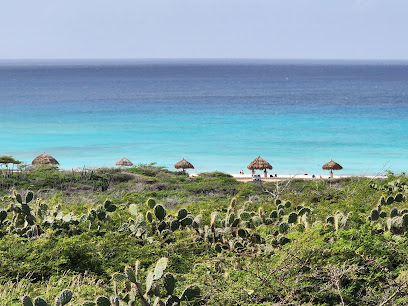
Natural Bridge Aruba
Explore Aruba's Natural Bridge, a stunning historical landmark showcasing breathtaking coastal views and rich geological history.
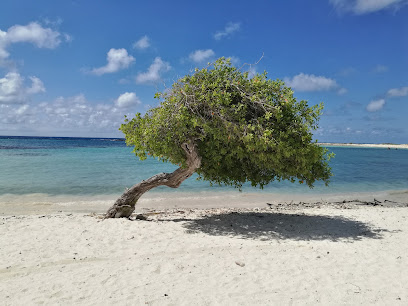
Arikok National Park
Explore Aruba's Arikok National Park, a breathtaking blend of nature and culture, offering scenic trails and unique wildlife experiences in a stunning national park setting.
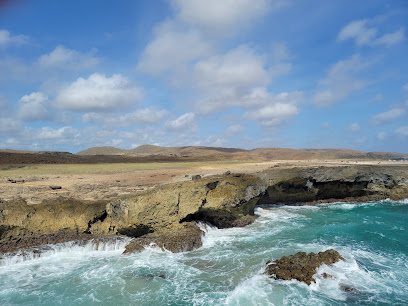
Butterfly Farm
Discover the enchanting Butterfly Farm in Aruba, a vibrant sanctuary teeming with colorful butterflies in a lush tropical setting, perfect for nature lovers.
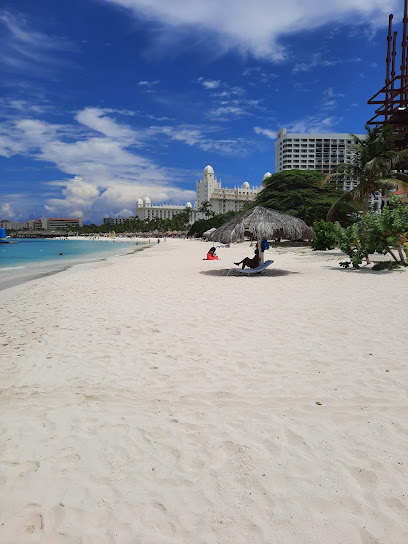
Alto Vista Chapel
Discover tranquility and breathtaking views at Alto Vista Chapel, a historic gem in Aruba's picturesque landscape.
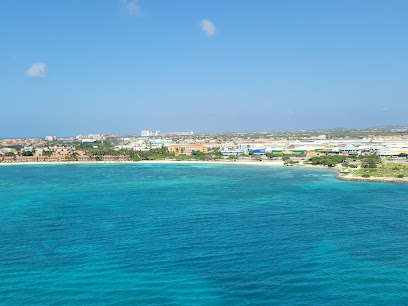
Bushiribana Ruins
Unearth Aruba's history at the Bushiribana Ruins, a stunning yet solemn landmark that tells the tale of the island's gold mining heritage amidst picturesque coastal views.
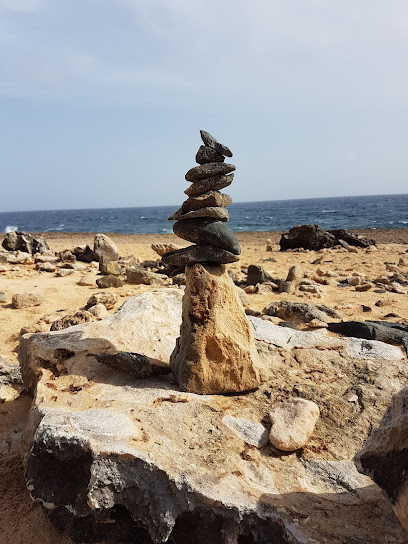
Boca Catalina Beach
Experience the serene beauty of Boca Catalina Beach in Aruba, where crystal-clear waters and vibrant marine life come together for an unforgettable escape.
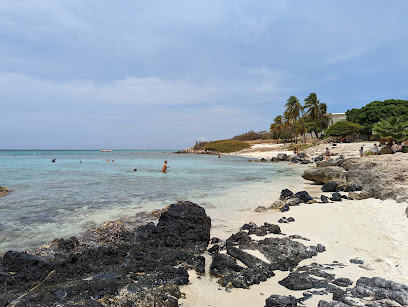
Renaissance Island Beach
Experience the tropical paradise of Renaissance Island Beach in Aruba, where pristine sands, flamingos, and adventure await every traveler.
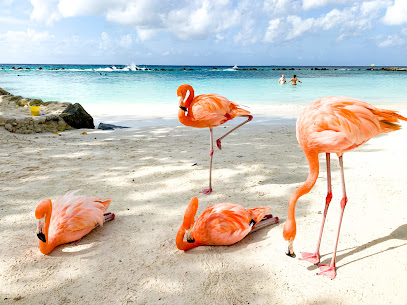
Bushiribana Gold Smelter
Discover the rich history and stunning coastal views at Bushiribana Gold Smelter, a must-visit tourist attraction in Aruba.
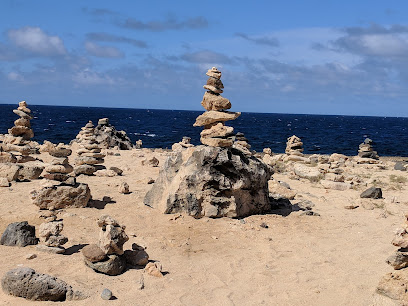
Donkey Sanctuary Aruba
Meet Aruba's rescued donkeys at this heartwarming sanctuary. A unique experience for animal lovers and families!
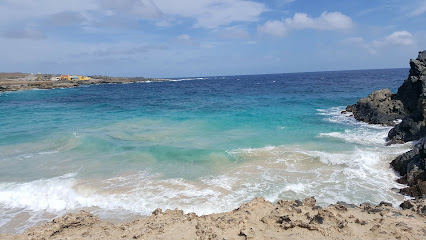
Fofoti Tree
Discover the stunning Fofoti Tree in Aruba, a natural masterpiece perfect for photography and relaxation amidst breathtaking coastal views.
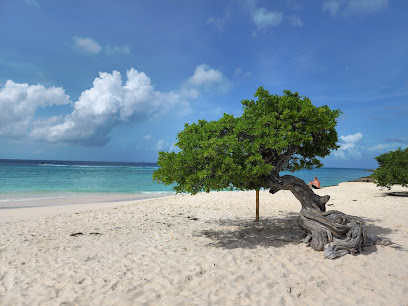
Arashi Beach
Discover Arashi Beach in Aruba: a tranquil escape with pristine sands, crystal-clear waters, and exciting water sports for every traveler.
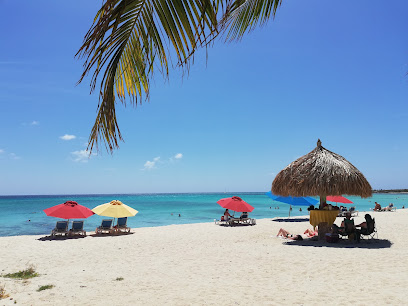
Amore Mio Pizzeria Napoletana
Experience the true taste of Italy at Amore Mio Pizzeria Napoletana, where authentic Neapolitan pizzas and a vibrant atmosphere await you in Aruba.
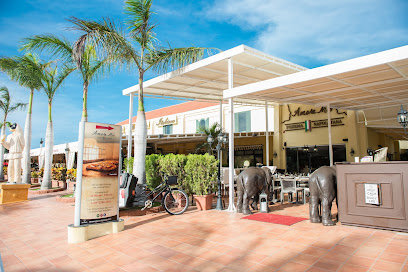
Texas de Brazil
Experience authentic Brazilian flavors at Texas de Brazil in Aruba, where succulent meats and vibrant dishes delight every palate.
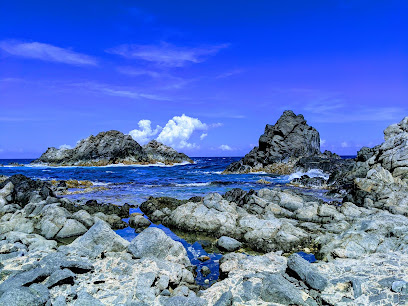
Ayo Rock Formations
Explore the breathtaking Ayo Rock Formations in Aruba, a stunning natural wonder filled with ancient petroglyphs and vibrant landscapes.
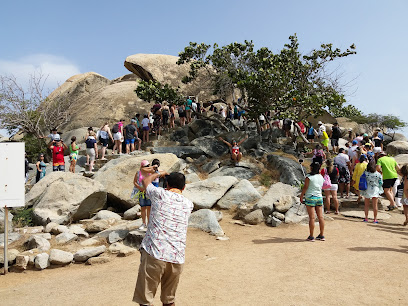
Unmissable attractions to see
Baby Beach
Experience the pristine beauty and tranquil waters of Baby Beach, a family-friendly paradise in Aruba, perfect for relaxation and aquatic adventures.
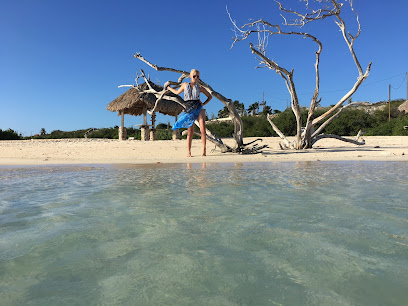
Arashi Park
Discover Arashi Park in Aruba: A serene escape with lush landscapes, scenic trails, and the beautiful Arashi Beach nearby. Perfect for relaxation and nature lovers.
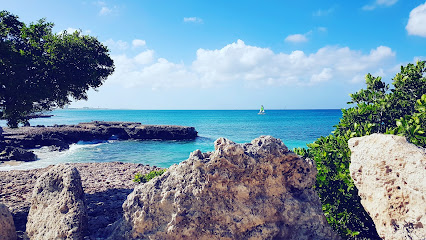
Donkey Sanctuary Aruba
Meet and support rescued donkeys at this unique Aruba sanctuary. A heartwarming experience for animal lovers of all ages.
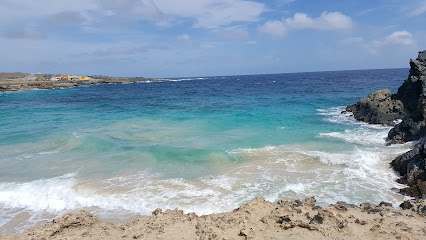
Fontein Cave
Discover ancient petroglyphs and stunning rock formations at Fontein Cave, a natural and historical treasure within Aruba's Arikok National Park.
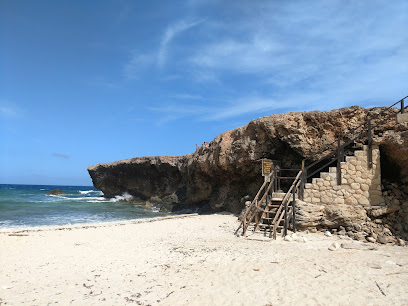
Antilla Shipwreck
Explore Aruba's famed Antilla Shipwreck: a WWII-era German freighter teeming with marine life. A must-see dive & snorkel site!
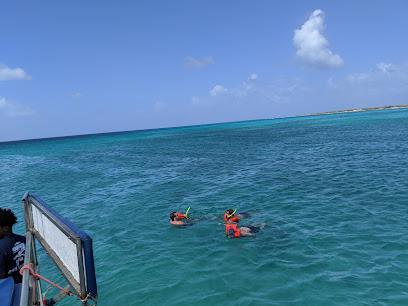
Bubali Bird Sanctuary
Discover Aruba's diverse birdlife at Bubali Bird Sanctuary, a serene wetland oasis perfect for birdwatching and nature photography.
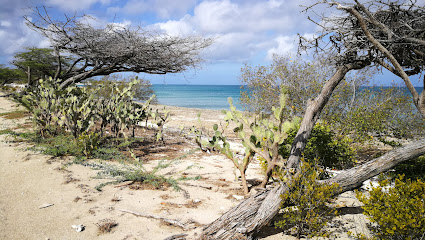
Hooiberg Hiking Trail
Hike Aruba's iconic Hooiberg for panoramic views, a rewarding workout, and a connection to the island's natural beauty and cultural heritage.
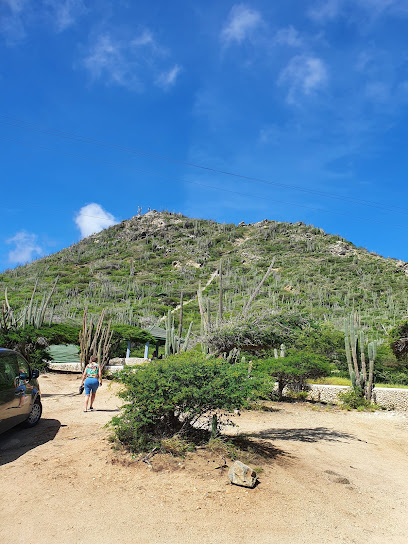
Blackstone beach
Discover Aruba's wild side at Blackstone Beach: a unique black rock beach offering stunning views and tranquil exploration.
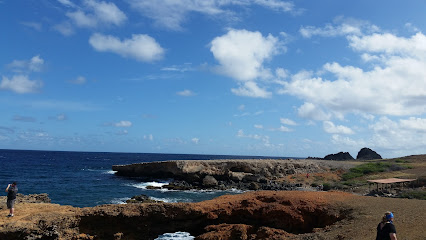
On The Rocks
Experience crafted cuisine and vibrant nightlife at On The Rocks, located in The Cove Mall on Aruba's high-rise strip.

Glitz Casino
Experience the excitement of Glitz Casino in Aruba, with gaming, entertainment, and complimentary drinks until the early hours!
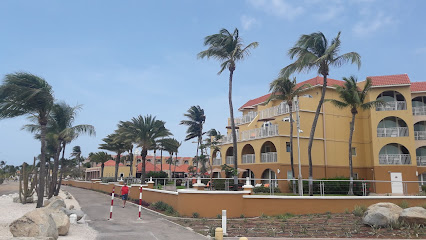
Alto Vista Winery & Distillery
Experience the unexpected: Aruba's first winery & distillery, crafting unique wines & spirits in a stunning desert setting. Book your tour today!
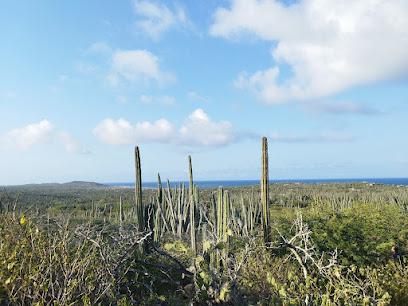
Palm Beach
Experience Aruba's vibrant tourism scene at Palm Beach, offering white sands, turquoise waters, and endless activities for all travelers.
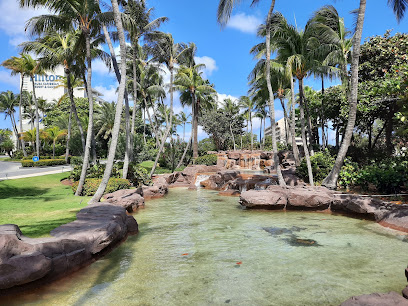
Parke Arawa
Experience thrilling rides, games, and delicious food at Parke Arawa, Aruba's premier amusement park for family fun and unforgettable memories.
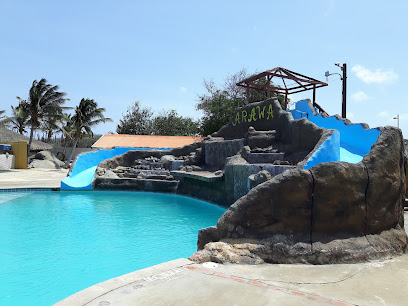
Boca Keto
Discover Boca Keto: A secluded Aruba beach with unique rock formations, perfect for nature lovers and photographers.
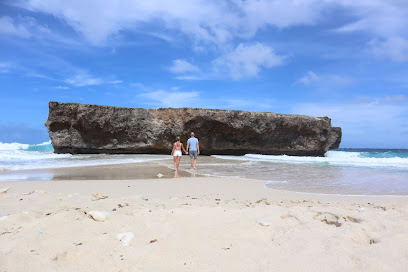
Westpunt Beach
Discover Westpunt Beach: A tranquil Aruba escape with stunning sunsets, clear waters, and vibrant marine life. Perfect for relaxation and snorkeling.
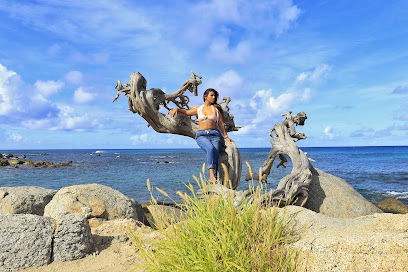
Essential places to dine
Passions On The Beach
Experience exquisite seafood dining with breathtaking ocean views at Passions On The Beach in Aruba.
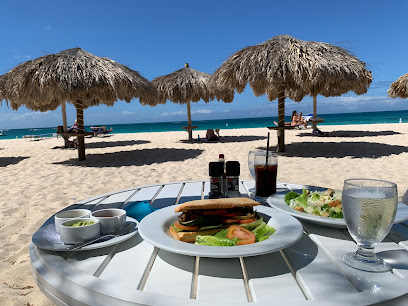
Quinta del Carmen
Discover Quinta del Carmen: A Culinary Haven in Oranjestad Offering Exquisite Local and International Flavors.
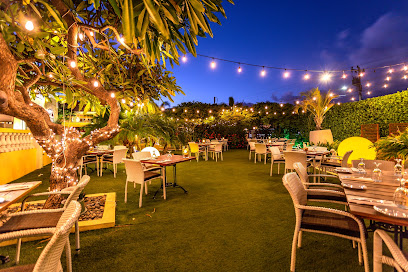
Screaming Eagle Restaurant
Discover Screaming Eagle Restaurant: Where Culinary Excellence Meets Island Charm in Oranjestad.
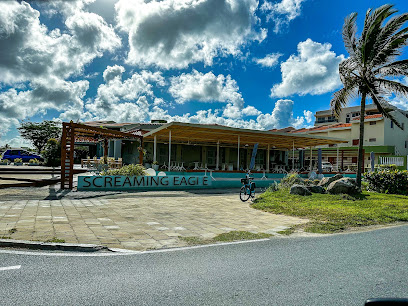
Así Es Mi Peru
Experience authentic Peruvian cuisine at Así Es Mi Peru in Aruba—where vibrant flavors meet warm hospitality.
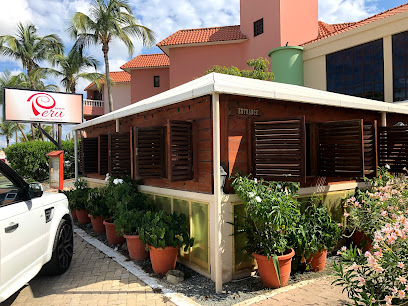
Papillon Restaurant
Experience exquisite French and vegan cuisine in an elegant setting at Papillon Restaurant in Aruba.
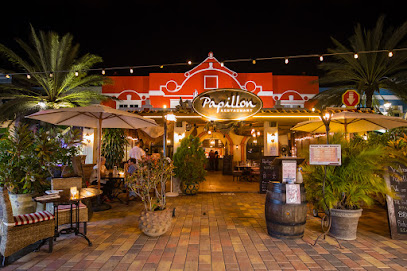
Aqua Grill Aruba | Fresh Seafood and More
Experience exquisite seafood dining at Aqua Grill Aruba, where fresh Caribbean flavors meet breathtaking views in an elegant setting.
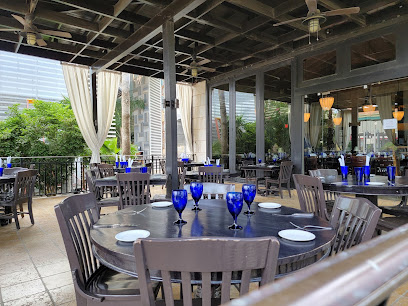
Chalet Suisse
Experience fine Swiss cuisine in the heart of Aruba at Chalet Suisse – where culinary excellence meets warm hospitality.
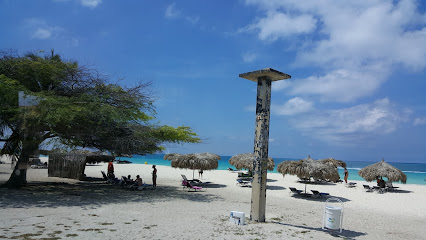
Elements Restaurant - Adults only
Discover culinary excellence at Elements Restaurant - where adults savor exquisite flavors against breathtaking ocean views.
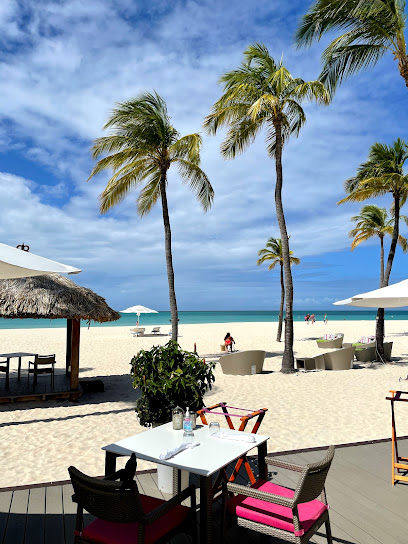
Water's Edge Restaurant & Bar
Experience culinary excellence with breathtaking ocean views at Water's Edge Restaurant & Bar in Aruba.
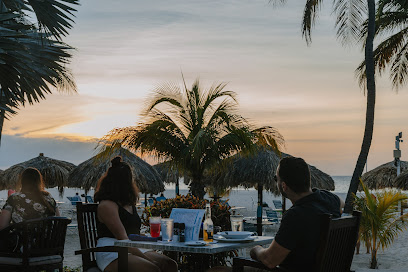
Terrazza Italiana
Experience authentic Italian cuisine at Terrazza Italiana in Aruba with stunning ocean views and a welcoming atmosphere.
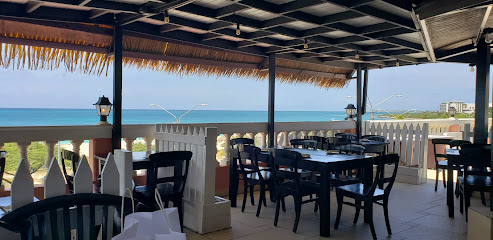
Las Ramblas
Savor the flavors of Aruba at Las Ramblas – where culinary excellence meets vibrant atmosphere.
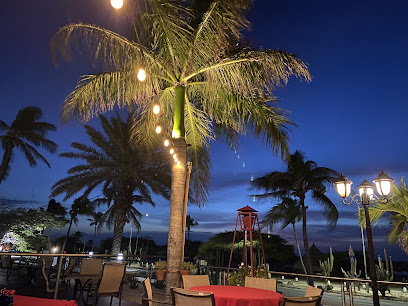
The Islander Bar And Grill
Discover authentic Caribbean cuisine at The Islander Bar And Grill in Aruba – where flavor meets stunning ocean views.
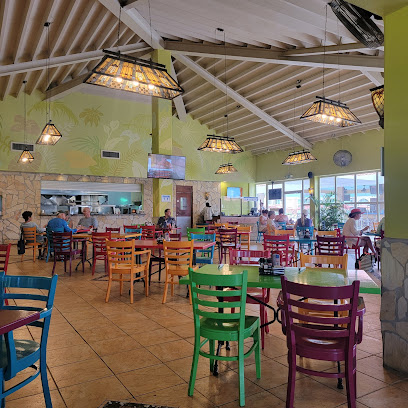
Po-Ké Ono Azure
Discover the vibrant flavors of Aruba at Po-Ké Ono Azure - a culinary gem in Oranjestad offering fresh local cuisine and an inviting atmosphere.
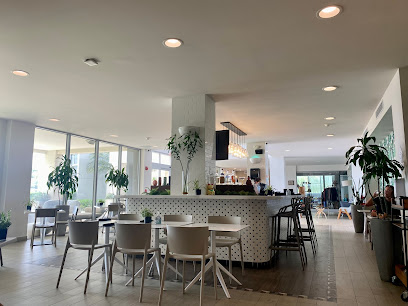
Double Down Sports Bar & Grill Restaurant
Discover Double Down Sports Bar & Grill in Aruba: where delicious cuisine meets an exciting sports atmosphere!
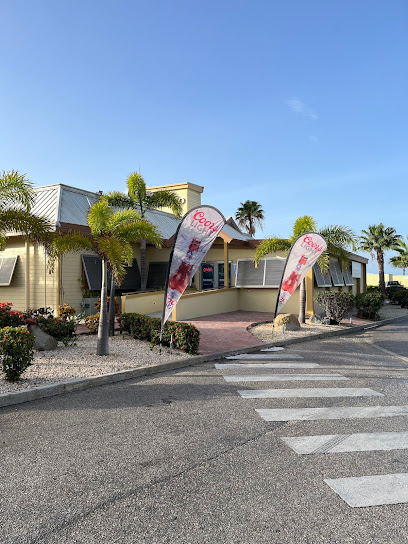
Ike's Bistro
Discover Ike's Bistro in Aruba: where local flavors meet international cuisine in a cozy setting perfect for any occasion.
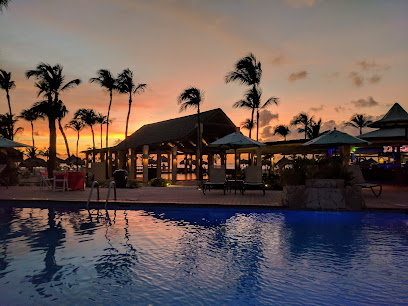
Markets, malls and hidden boutiques
Palm Beach Plaza Mall
Discover the vibrant Palm Beach Plaza Mall in Aruba, where shopping, dining, and entertainment blend seamlessly in a tropical paradise.
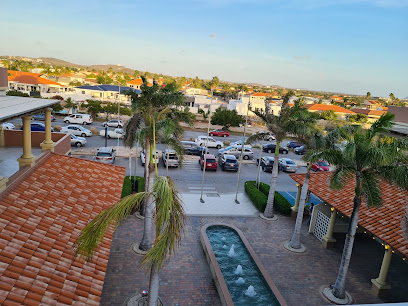
Paseo Herencia Mall
Explore the vibrant Paseo Herencia Mall in Aruba, featuring diverse shops, delightful dining, and captivating entertainment for an unforgettable experience.

D Shop Aruba
Discover stylish clothing and vibrant accessories at D Shop Aruba, the perfect destination for fashion lovers in Oranjestad.

Style Aruba .com (Appt. Only! Book Online Or Call)
Discover unique gifts, beach clothing, and local jewelry at Style Aruba, the ultimate tourist destination for authentic island treasures.
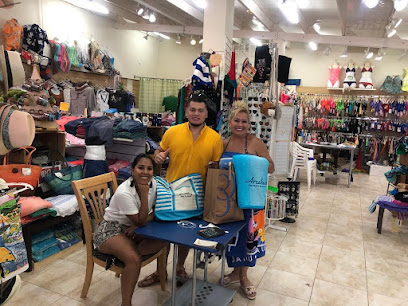
I Love Aruba Store II
Shop at I Love Aruba Store II for unique souvenirs and stunning jewelry that capture the spirit of Aruba, offering a delightful shopping experience amidst the island's charm.
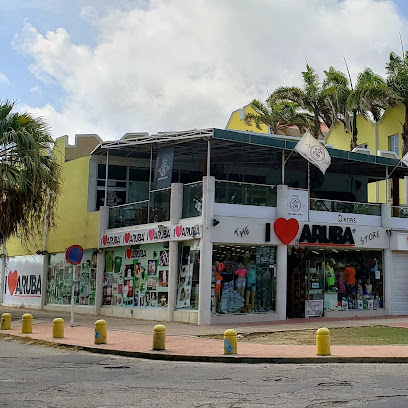
TIME SQUARE ARUBA
Explore the exquisite jewelry collection at Time Square Aruba, where elegance meets creativity in the heart of the Caribbean.
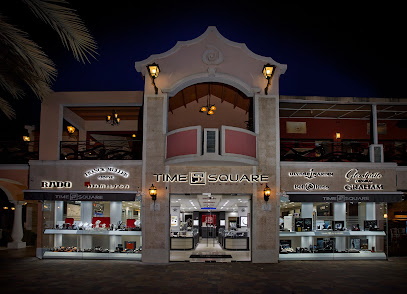
I Love Aruba Store I
Explore the vibrant I Love Aruba Store I for unique souvenirs and jewelry that capture the essence of Aruba's rich culture and artistry.
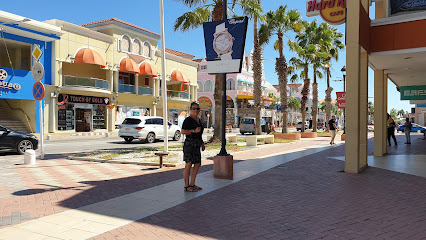
Keshi di Hulanda
Discover a slice of Aruba's culinary charm at Keshi di Hulanda, where artisanal cheeses and gourmet delights await every food lover.
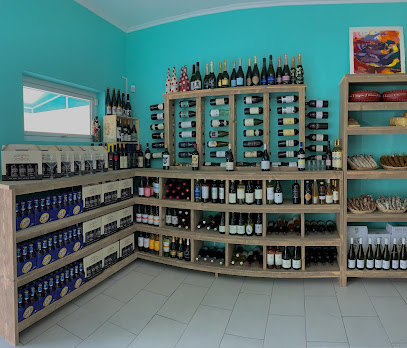
Anapo MiniMarket
Anapo MiniMarket in Noord offers a delightful selection of snacks, essentials, and souvenirs, perfect for enhancing your Aruba vacation experience.
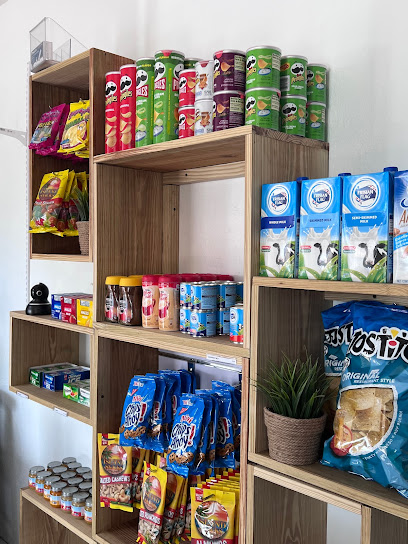
Kristie's Jewels
Explore the finest selection of handcrafted jewelry at Kristie's Jewels, where elegance meets exceptional service in the heart of Aruba.
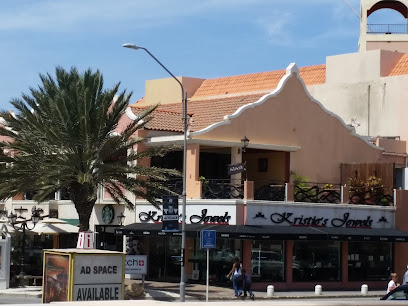
The Juggling Fish
Explore The Juggling Fish in Aruba for trendy beachwear and unique gifts, perfect for your tropical getaway.
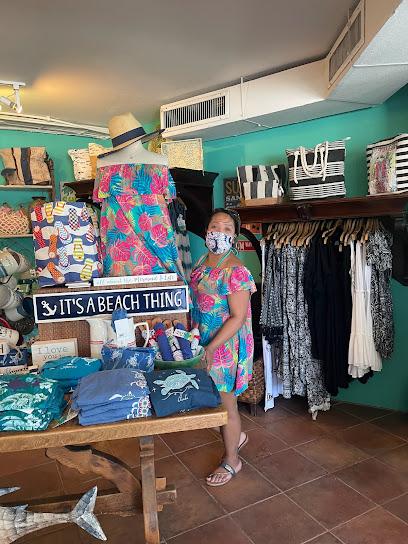
The Village Mall Aruba
Experience the vibrant shopping scene at The Village Mall Aruba, where local charm meets international flair in a shopper's paradise.
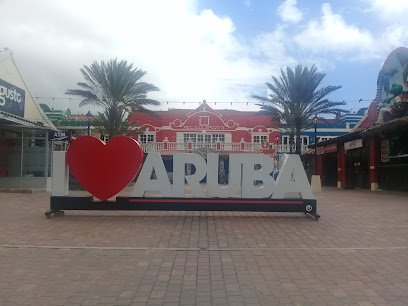
T.H. Palm & Company
Explore T.H. Palm & Company: Aruba's top gift shop and boutique for trendy souvenirs and stylish clothing that embody the island's spirit.
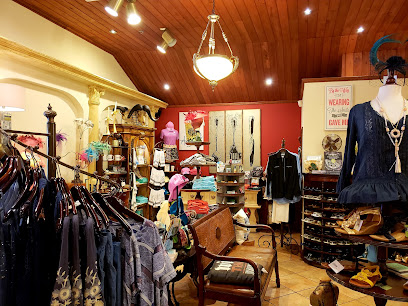
Flamingo Souvenir Store
Explore the vibrant Flamingo Souvenir Store in Aruba, where unique local crafts meet the spirit of the Caribbean.
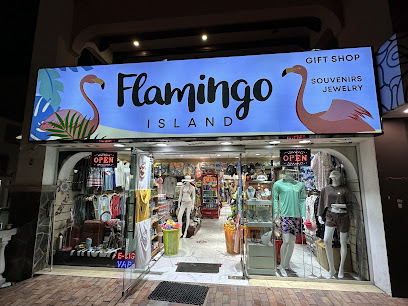
Aruba Wear
Discover a vibrant collection of clothing and unique souvenirs at Aruba Wear, your essential stop in Oranjestad for island-style treasures.
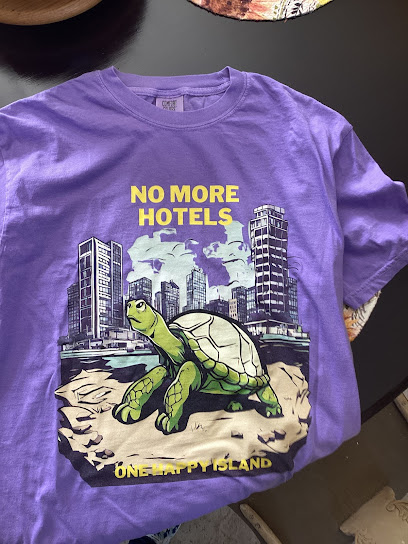
Essential bars & hidden hideouts
Bugaloe
Experience the vibrant culinary scene of Aruba at Bugaloe, where delicious grilled dishes meet stunning ocean views in an inviting atmosphere.
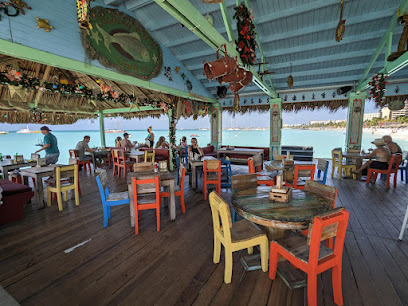
Passions On The Beach
Experience the ultimate seafood dining at Passions On The Beach, where fresh flavors meet breathtaking ocean views in Aruba.
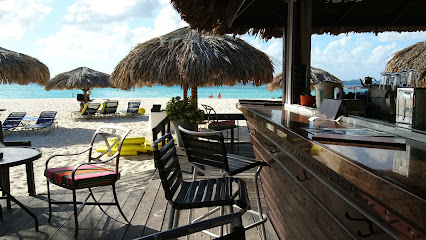
Coco Loco Beach Bar
Experience the vibrant atmosphere and delicious flavors of Coco Loco Beach Bar, a tropical paradise in Aruba's Noord region.
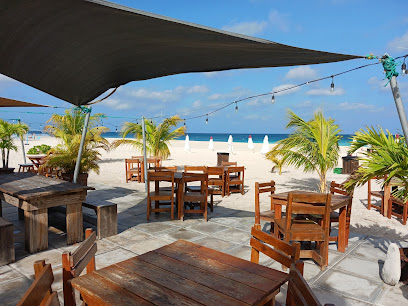
Reflexions Beach Bar & Restaurant Aruba
Experience the vibrant culture and flavors of Aruba at Reflexions Beach Bar & Restaurant, where food, fun, and stunning ocean views collide.
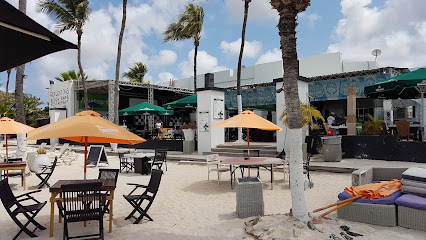
Surfside Beach Bar
Discover the vibrant atmosphere of Surfside Beach Bar in Aruba, where tropical drinks and delicious bites meet stunning ocean views.
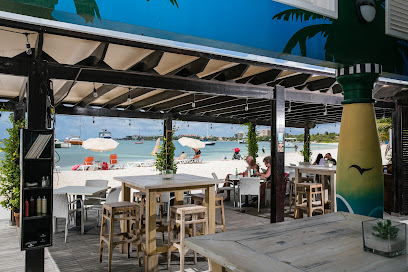
Screaming Eagle Restaurant
Discover the culinary artistry of Screaming Eagle Restaurant in Aruba, where innovative flavors and Caribbean charm create an unforgettable dining experience.
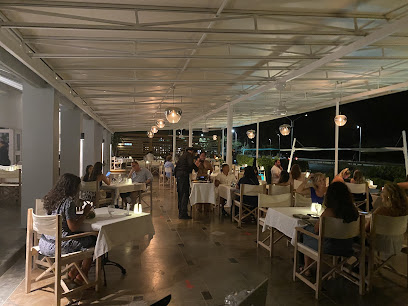
The Islander Bar And Grill
Experience the vibrant flavors of Aruba at The Islander Bar And Grill, where delicious cuisine meets stunning views in a relaxed setting.
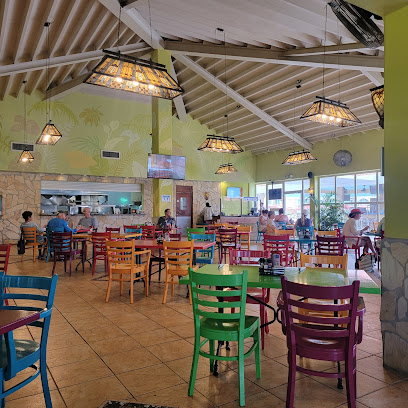
Ocean View Bar
Experience the perfect blend of relaxation and vibrant nightlife at Ocean View Bar, Aruba's premier beachfront destination.
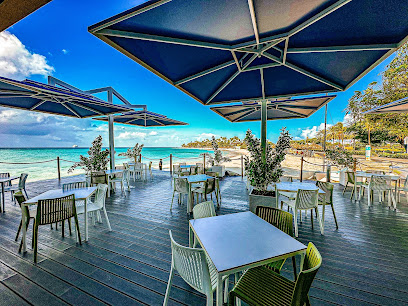
The Beach Bar
Experience the vibrant atmosphere of The Beach Bar in Aruba, where tropical cocktails meet stunning ocean views for the ultimate getaway.
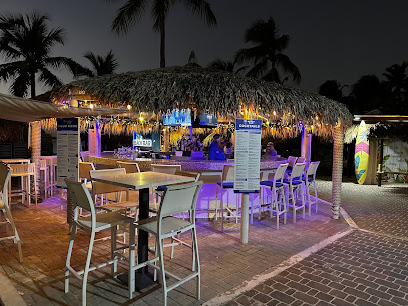
Double Down Sports Bar & Grill Restaurant
Experience the vibrant flavors of Aruba at Double Down Sports Bar & Grill, where delicious food and a lively atmosphere await.
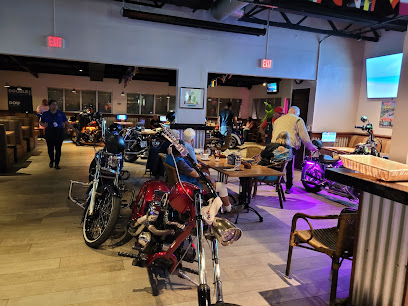
Kalibra Bar
Experience the vibrant nightlife of Aruba at Kalibra Bar, where exquisite cocktails and a lively atmosphere await you.
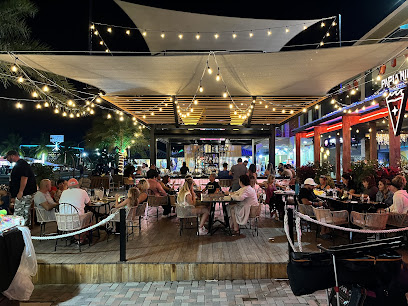
Saloon Bar Aruba
Discover the vibrant nightlife at Saloon Bar Aruba, where delicious drinks and live entertainment create unforgettable evenings in the heart of Palm Beach.
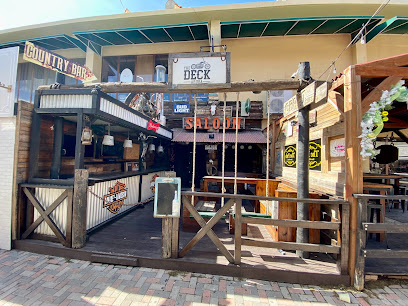
Pega Pega Beach Bar and Grill
Discover the ultimate beachside retreat at Pega Pega Beach Bar and Grill in Aruba, where culinary delights meet stunning ocean views.
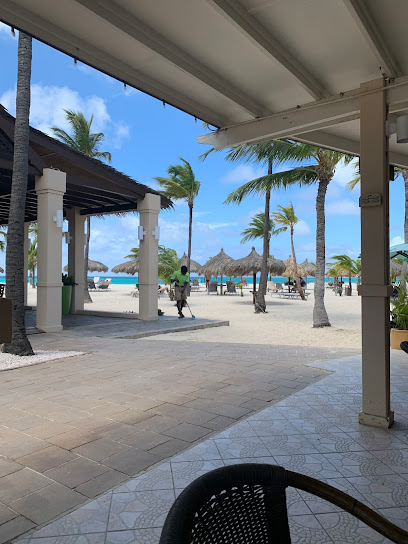
Blue Beach Bar & Terrace Aruba
Discover the essence of Aruba at Blue Beach Bar & Terrace, where local flavors meet stunning seaside views in a vibrant atmosphere.
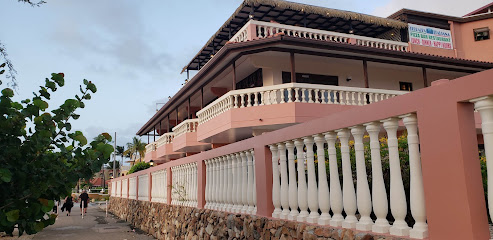
Local Phrases about Eagle Beach
-
- HelloBon dia
[bon dee-ya] - GoodbyeAyo
[ah-yo] - YesSi
[see] - NoNo
[no] - Please/You're welcomePor fabor
[por fa-bor] - Thank youDanki
[dan-kee] - Excuse me/SorryPardon
[par-don] - How are you?Con ta bai?
[kon ta by?] - Fine. And you?Bon. I bu?
[bon. ee boo?] - Do you speak English?Bo papia Ingles?
[bo pa-pee-ya een-gles?] - I don't understandMi no ta comprende
[mee no ta kom-prehn-deh]
- HelloBon dia
-
- I'd like to see the menu, pleaseMi kier mira e menu, por fabor
[mee keyr mee-rah eh meh-noo, por fa-bor] - I don't eat meatMi no ta come karni
[mee no ta kom-eh kar-nee] - Cheers!Salud!
[sa-lood] - I would like to pay, pleaseMi kier paga, por fabor
[mee keyr pa-ga, por fa-bor]
- I'd like to see the menu, pleaseMi kier mira e menu, por fabor
-
- Help!Yuda!
[yoo-da] - Go away!Bai for di mi!
[bye for dee mee] - Call the Police!Yama polis!
[ya-ma po-lees] - Call a doctor!Yama un dokter!
[ya-ma oon dok-ter] - I'm lostMi a perde mi mes
[mee ah per-deh mee mes] - I'm illMi ta malu
[mee ta ma-loo]
- Help!Yuda!
-
- I'd like to buy...Mi kier cumpra...
[mee keyr koom-pra] - I'm just lookingMi ta solamente mira
[mee ta so-la-men-teh mee-rah] - How much is it?Con ta costa esaki?
[kon ta kos-ta eh-sa-kee] - That's too expensiveEsaki ta muchu caro
[eh-sa-kee ta moo-choo ka-ro] - Can you lower the price?Porfabor, por baha e prijs?
[por-fa-bor, por ba-ha eh prees]
- I'd like to buy...Mi kier cumpra...
-
- What time is it?Kuantu ora ta?
[kwahn-too or-ra tah] - It's one o'clockTa un ora
[tah oon or-ra] - Half past (10)Mei ora
[meh-ee or-ra] - MorningMadruga
[mad-roo-ga] - AfternoonTardi
[tar-dee] - EveningAnochi
[ah-no-chee] - YesterdayAyera
[ah-yeh-rah] - TodayAwe
[ah-weh] - TomorrowMañana
[ma-nyah-na] - 1Un
[oon] - 2Dos
[dose] - 3Tres
[tres] - 4Cuater
[kwa-ter] - 5Cinco
[seen-ko] - 6Seis
[sace] - 7Siete
[see-eh-teh] - 8Ocho
[oh-cho] - 9Nuebe
[noo-eh-beh] - 10Dies
[dees]
- What time is it?Kuantu ora ta?
-
- Where's a/the...?Unda ta...?
[oon-dah tah] - What's the address?Kico ta e adres?
[kee-ko tah eh ah-dres] - Can you show me (on the map)?Por mustra mi (riba e mapa)?
[por moos-tra mee (ree-bah eh ma-pa)] - When's the next (bus)?Con ta proximo (bus)?
[kon tah prok-see-mo (boos)] - A ticket (to ....)Un ticket (pa ....)
[oon tee-ket (pah)]
- Where's a/the...?Unda ta...?
History of Eagle Beach
-
Eagle Beach, like much of Aruba, was originally inhabited by the Arawak people. This indigenous group lived in the Caribbean long before European settlement. They were known for their sophisticated agriculture, pottery, and navigation skills. Eagle Beach was a part of their territory, and remnants of their culture can still be found in the area.
-
In 1499, Spanish explorers led by Alonso de Ojeda arrived in Aruba, marking the beginning of European colonization. The Spanish ruled Aruba for over a century, and during this time, the island served primarily as a cattle ranch. Eagle Beach would have been part of the landscape known to these early European settlers.
-
In 1636, Aruba was taken over by the Dutch, who saw the island's strategic value. Dutch colonization brought prosperity to the island through trade and commerce. Eagle Beach became an important locale under Dutch rule, particularly due to its expansive and inviting shoreline, which facilitated trade and commerce.
-
The discovery of gold in the 19th century brought a new wave of prosperity to Aruba. Eagle Beach, with its close proximity to various mining sites, became a popular spot for miners and traders. Although the gold rush was short-lived, it left an indelible mark on the region's history.
-
During World War II, Aruba's oil refineries became crucial to the Allied war effort. The island, including Eagle Beach, saw an increase in military activity and fortifications. Eagle Beach served as a recreational area for soldiers stationed on the island, adding a layer of modern history to its diverse past.
-
In the latter half of the 20th century, Eagle Beach transitioned into a major tourist destination. The development of luxury resorts, restaurants, and water sports facilities transformed the area into a hotspot for international tourists. Today, Eagle Beach is celebrated not just for its natural beauty but also for its rich historical tapestry.
-
Eagle Beach is also known for hosting various cultural festivals and events that celebrate Aruba's diverse heritage. Events such as the annual Carnival and Dande festival highlight the island's Afro-Caribbean and Latin influences, providing visitors a glimpse into the vibrant local culture.
Eagle Beach Essentials
-
Eagle Beach is located on the western coast of Aruba, approximately 10 km from Queen Beatrix International Airport (AUA). From the airport, you can take a taxi, which is the quickest option and takes around 15-20 minutes. Alternatively, you can rent a car at the airport or book a shuttle service through your hotel.
-
While Eagle Beach is easily walkable, renting a bike or a car can give you more freedom to explore. Taxis are readily available and safe, but ensure they are registered with the Aruba Taxi Association. Public buses also run frequently between major tourist areas, including Eagle Beach. Car rentals are available at various locations, but it’s wise to book in advance during peak seasons.
-
The official currency of Aruba is the Aruban Florin (AWG), but US Dollars are widely accepted. Credit cards are accepted in most establishments, including hotels, restaurants, and shops. ATMs are available in and around Eagle Beach, dispensing both Florins and US Dollars. It's advisable to carry some cash for smaller vendors and tips.
-
Eagle Beach is generally very safe for tourists. However, like any popular destination, it is wise to remain vigilant. Avoid isolated areas at night and keep an eye on your belongings, especially on the beach. While Aruba has a low crime rate, petty theft can occur. Use hotel safes to store valuables and be cautious in crowded areas.
-
In case of emergency, dial 911 for immediate assistance. There are medical facilities and pharmacies near Eagle Beach. The Dr. Horacio E. Oduber Hospital is the main hospital on the island, located a short drive from the beach. It’s highly recommended to have travel insurance that covers medical emergencies. Many hotels also provide assistance and can contact medical services if needed.
-
Fashion: Do wear light, comfortable clothing and swimwear at the beach. Avoid wearing swimwear in restaurants or shops; cover up with a shirt or dress. Religion: Do respect local religious practices and dress modestly if visiting churches. Public Transport: Do use public buses and taxis for a convenient and economical way to get around. Avoid hailing unregistered taxis. Greetings: Do greet people with a friendly 'Bon Bini' (Welcome) or 'Bon Dia' (Good day). Eating & Drinking: Do try local dishes like Keshi Yena and fresh seafood. Don’t drink tap water; bottled water is recommended.
-
To experience Eagle Beach like a local, visit during the early morning or late afternoon to avoid the heat and crowds. Try local food trucks for authentic and affordable Aruban cuisine. Participate in beach activities such as snorkeling, paddleboarding, or attending a beach yoga session. Engage with locals, who are often friendly and happy to share tips about the best spots to visit.
Trending Landmarks in Eagle Beach
Nearby Cities to Eagle Beach
-
Things To Do in Noord
-
Things To Do in Tanki Leendert
-
Things To Do in Oranjestad
-
Things To Do in Sero Blanco
-
Things To Do in Paradera
-
Things To Do in Santa Cruz
-
Things To Do in Pos Chiquito
-
Things To Do in Savaneta
-
Things To Do in San Nicolas
-
Things To Do in Sabana Westpunt
-
Things To Do in Westpunt
-
Things To Do in Soto
-
Things To Do in Barber
-
Things To Do in Sint Michiel
-
Things To Do in Julianadorp









